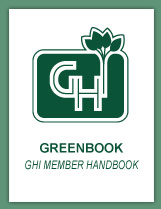XXI. Fireplaces and Wood Stoves
- PURPOSE
These fireplace regulations are designed to achieve the following results:- Protect the safety and welfare of the members and buildings.
- Insure that improvements made by members are done in a workmanlike manner and comply with building codes.
- Maintain an aesthetically pleasing environment.
- Minimize smoke, air pollution, and disruption to adjoining members.
Review of member requests and enforcement of regulations shall be conducted so as to facilitate achieving these goals.
- REGULATIONS
- All fireplaces and wood stoves must have specific management approval in writing.
- Detailed construction drawings and catalog data, including weight and underwriters' or other testing laboratories' approvals must accompany all requests. Upon approval of those drawings and data, an on-site inspection shall take place to approve the safe location of the fireplace and/or wood stove.
- Masonry fireplaces must have adequate foundation support.
- All wood stoves, freestanding, masonry, and pre-fabricated fireplaces must be installed in accordance with national Fire Protection Association (NFPA) and other applicable regulations. Coal burning stoves shall not be allowed. Ventfree (unvented) gas fireplaces are not allowed.
- The installation of metal stovepipe and chimney shall be in accordance with manufacturer's instructions and all County codes. Sound fastening methods shall be used, and proper fire stops, support brackets, cleanouts, and flashing collars shall be used.
- In accordance with NFPA regulations, chimneys must extend above the roof as follows; In all structures, the chimney must extend at least three (3) feet above the roof, at the highest point of penetrations and must also extend at least two (2) feet above any point on any structure within ten (10) feet from the chimney.
- In new installations the exposed chimney pipe shall be covered with material compatible with the original house exterior. With frame homes, brick or vinyl would be compatible; with brick or block homes, brick or stucco would be compatible. On brick or block additions, the chimney covering should be compatible with the covering of the addition.
- All metal chimneys shall be erected with the lap joints facing downward. They shall be constructed from 24-gauge or heavier sheet metal. The stovepipe or chimney shall be the same size or larger than the appliance flue connector.
- It is strongly recommended that all new wood burning appliances installed be the type with an integrally incorporated catalytic burner (i.e., built into the appliance itself). Such devices tend to reduce the occurrence of creosote buildup, flue fires, and air pollution.
- A member having any solid-fuel or gas-fired appliance (built-in fireplace or freestanding stove) shall obtain HO-6 insurance coverage, and provide evidence of such insurance coverage prior to final inspection for new installations, and annually in conjunction with the required inspection (see XXI.B.11).
- All fireplaces, wood stoves, and chimneys must be kept clean in order to reduce the occurrence of creosote buildup and the smoke and fire hazards associated with this.
In order to ensure community-wide safety, all fireplaces, wood stoves, and chimneys must be professionally inspected per NFPA 211 and cleaned (if found necessary from inspection) by a professional agency by July 1st of each year. As part of this process, a GHI-provided safety checklist form must be filled out and signed by the cleaning agency and returned to GHI by July 15th by the member. To aid members in this effort, GHI will contract with a professional cleaning agency once yearly, before the deadline, to perform inspection and cleaning at a fee to be charged to the individual member. Such a service would satisfy the above requirement. This service will be done automatically on all GHI fireplaces, wood stoves and flues as requested by the member. A GHI-mailed notice of the cleaning service will be sent to members in May of each year, and members must reply by the deadline. Members using GHI's contracted sweep service will be billed by GHI for the cleaning and inspection service. In the event of no reply by the notice deadline, GHI will schedule inspection and, if necessary, cleaning by its contracted chimney sweep, and the member will be responsible for associated fees.
- ENFORCEMENT
All fireplaces and wood stoves installed with written approval from GHI prior to the adoption of these regulations will not require modification unless there is a clear violation of building code requirements which results in a potential health or safety hazard.Any fireplaces or wood stoves installed without written approval of GHI prior to the adoption of these regulations are required to be modified to meet these regulations.




